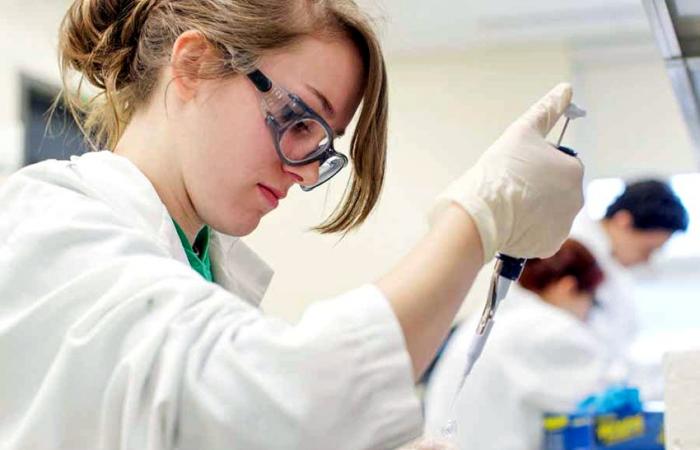While Algeria has made progress, where many pathologies have been diagnosed using innovative techniques, obstacles persist and hinder the progress of research.
Algeria has recently seen remarkable progress in the field of molecular genetics, a biological discipline that explores the structure and function of DNA and RNA at the molecular level, with considerable applications in health. . This area constitutes a major priority for the Algerian State, particularly in the context of public health.
In order to assess the advances and challenges encountered in this crucial area, the faculty of natural and life sciences at Frères Mentouri University – Constantine 1 organized the first national seminar entitled “Molecular genetics and health: where in is Algeria? This major meeting, spread over two days, brought together 160 participants, 13 institutions and 84 communications, including 22 oral presentations.
“The question of – Where is Algeria? – is asked to take stock of the research carried out in public and private research laboratories,” declared to El Watan, Djalila Chellat, professor at the Faculty of natural and life sciences from Frères Mentouri University. She expressed surprise at the progress made in Algeria, where many pathologies have been diagnosed using innovative techniques such as next generation sequencing (NGS) and others.
However, obstacles persist and hinder the optimal conduct of research. These constraints are financial and procedural, according to many participants. Research laboratories are often forced to conduct doctoral training linked to research projects with insufficient funding, not even allowing the purchase of essential consumables and reagents.
Another speaker during the debate cited the slow supply of reagents, which can take up to six months or more after request. “Some suppliers do not respect transport conditions, which can alter the reagents due to lack of adequate storage conditions,” underlined Ms. Chellat.
Countless applications
For his part, Professor Idir Bitam, specialist in communicable diseases and emerging tropical pathologies and head of the agropastoralism research center in Djelfa, pleaded for the exploitation of technological advances in the field of diagnosis and biodiversity. His talk highlighted four major areas of the application of genetics in health, including the diagnosis of genetic diseases, the development of new treatments and the prediction of disease risks.
He particularly mentioned the Covid-19 virus, which has undergone 7,600 mutations since December 2019. Fortunately, these mutations are not all dangerous, especially since Algeria has already gone through five waves of the pandemic. He also highlighted viral diversity, particularly highly mutable airborne viruses, capable of adapting to the environment.
“This is where emerging technologies such as PCR, sequencing and NGS come in, which make it possible to confirm the existence of new variants,” he told El Watan on the sidelines of the meeting. In terms of prevention, he highlighted the prevalence of water-borne diseases in Algeria.
Molecular biogenesis, including NGS, can be used to identify the serotype of a virus to purify water. He also mentioned mosquito-borne viruses and specialized medicine to predict an individual’s risk of cancer. His speech concluded with an emphasis on the importance of miniaturized cutting-edge technologies.
In Algeria, this new technology “is poorly ordered.” Although five NGS devices are available nationwide, they do not meet current demand. Prof. Bitam called for the creation of regional technology platforms.
Each region should have an open Maldi-Tof mass spectrometry system, allowing the creation of databases, as well as sequencers, PCR and NGS. Our interlocutor stressed the importance of restoring Algeria’s scientific visibility in international publications, conferences and patents.
One of the major obstacles to this goal is the lack of adequate laboratories for the isolation of high-security pathogens. The Pasteur Institute, although valuable, is not enough. “Algeria lacks a research center capable of isolating samples presenting a high health risk.
During the Covid-19 outbreak in 2024, we were unable to isolate the virus. We managed to sequence it and detect it, but not to obtain the strain,” he revealed. And to plead for increased training in biosecurity, highlighting the ever-present threat of highly secure pathogens, such as the Ebola virus which can affect nationals of certain African countries.






